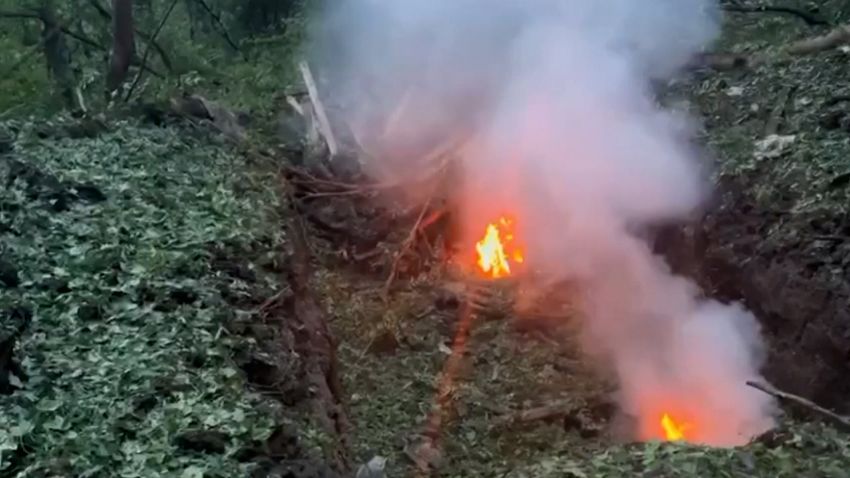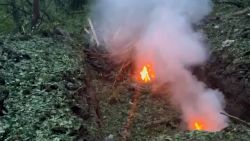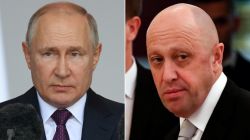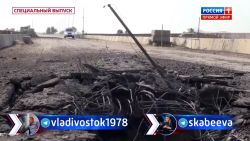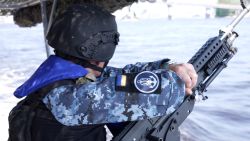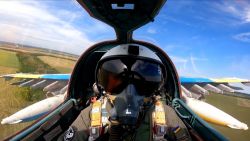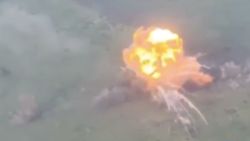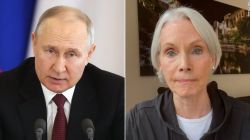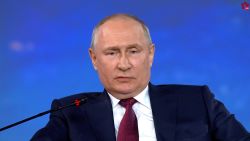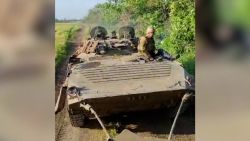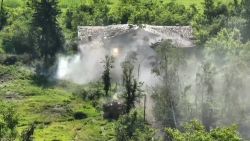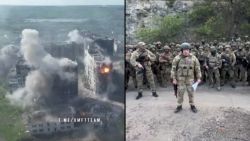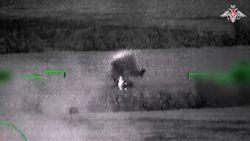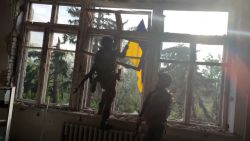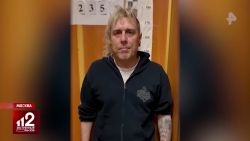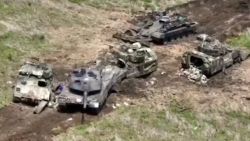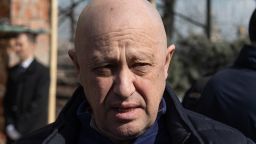Russian militia chief Yevgeny Prigozhin claimed his fighters have taken control of military facilities in a strategically critical Russian city and demanded that top military officials meet him in a stunning escalation of his feud with Moscow’s security establishment over their handling of the war in Ukraine.
Prigozhin, who heads private military group Wagner, pledged to blockade the southern Russian city of Rostov-on-Don and move on to Moscow if Defence Minister Sergei Shoigu and Russia’s top general Valery Gerasimov did not meet with him in the city, where Russia’s Southern Military District is headquartered.
The militia chief’s actions come after he accused Russian forces of striking a Wagner military camp and killing “a huge amount” of his fighters, and announced, in a series of Telegram messages Friday and Saturday, that his forces were moving into Rostov region, neighboring Russian-occupied Ukraine, ready to “destroy everything” in their way.
Russia’s Ministry of Defense denied Prigozhin’s claims of an attack on a Wagner camp, calling it an “informational provocation.”
The Federal Security Service (FSB), Russia’s domestic intelligence service, has responded to Prigozhin on Friday, urging Wagner fighters to detain their leader and opening a criminal case against the Prigozhin.
Russian leader Vladimir Putin was expected to make a speech Saturday, according to Kremlin spokesman Dmitry Peskov, as cited by state media outlet Tass.
Prigozhin, who has frequently criticized Russia’s traditional military hierarchy, warned in his messages that retribution would be meted out for the alleged attack on his fighters.
“We will deal with those who destroy Russian soldiers and return to the front, justice for the troops will be restored, and then justice for all of Russia,” he said.
“There are 25,000 of us and we are going to find out why there is such chaos in the country. There are 25,000 of us waiting as a tactical reserve and a strategic reserve. It’s the whole army and the whole country, everyone who wants to, join us. We must end this debacle,” he said, in a radical escalation of a longstanding feud with Russia’s military leaders.
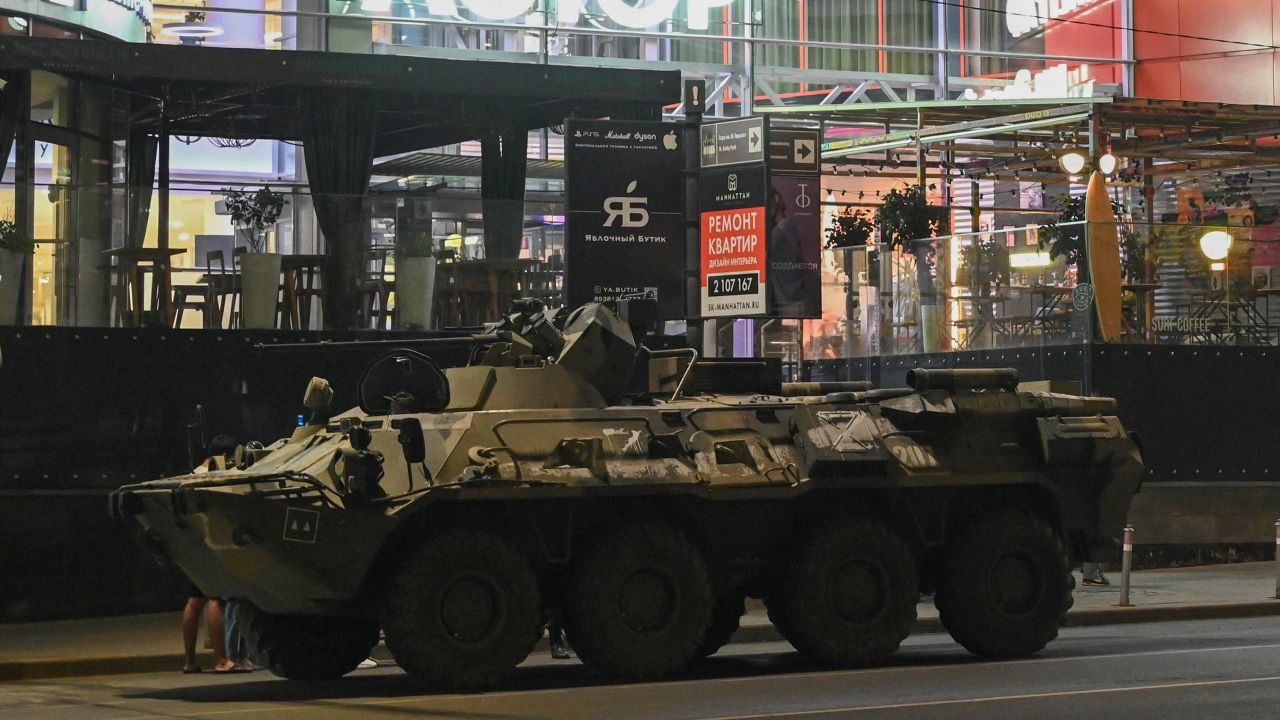
The Governor of Voronezh oblast, which lies to the north of Rostov said Saturday that “a convoy of military equipment” was on its way south.
Security measures were stepped up in Moscow Friday night. Russian intelligence official, Lt. Gen. Vladimir Alekseev, posted a video about Prigozhin’s actions that day, describing it as a coup attempt.
“Only the president has the right to appoint the top leadership of the armed forces, and you are trying to encroach on his authority. This is a coup d’etat. There is no need to do this now, because there is no greater damage to the image of Russia and to its armed forces,” he added.
Prigozhin said that his criticism of the Russian military leadership was a “march of justice” and not a coup. “This is not a military coup, this is a march of justice. Our actions do not interfere with the troops in any way,” Prigozhin said.
Wagner has played a prominent role in the Ukraine war, and Prigozhin, so far, has faced few consequences for his public feud with Russia’s military leadership – where he has accused Russian Defense Minister Sergei Shoigu and armed forces chief Valery Gerasimov of not giving his forces ammunition.
The FSB’s criminal case against Prigozhin accused him of “calling for an armed rebellion” – a crime Russian prosecutors say is punishable by imprisonment for 12 to 20 years.
“We call on the PMC fighters not to make irreparable mistakes, to stop any forceful actions against the Russian people, not to carry out Prigozhin’s criminal and treacherous orders, and to take measures to detain him,” said the statement on Friday.
Kremlin spokesman Dmitry Peskov said that Russian President Putin is aware of the situation and “all necessary measures are being taken,” according to state media RIA Novosti.
Russia on alert
As security measures stepped up in Moscow late on Friday, Prigozhin said his fighters entered Russia’s Rostov region, near southeast Ukraine, and were given a hero’s welcome.
“The border guards came out to meet and hugged our fighters,” he said.
In the first suggestion of open armed conflict between the two sides, Prigozhin on Saturday said his units were hit by a helicopter on a highway. It’s unclear exactly where the units were.
“The Wagner units are intact, the helicopter is destroyed and is burning in the forest,” Prigozhin said, adding “we will take it as a threat and destroy everything around us.”
Prigozhin also claimed a second helicopter was downed after it attacked civilians. He later said that Russian Guards and military police are supporting the Wagner group, saying 60-70 soldiers had already joined.
CNN has been unable to verify any of Prigozhin’s claims.
Rostov region Governor Vasily Golubev asked residents to stay calm and not leave their homes in a Telegram post Saturday.
“Law enforcement agencies are doing everything necessary to ensure the safety of the region’s residents,” Golubev said.
Videos circulating on social media and geolocated to the city of Rostov-on-Don, the capital of the Rostov region, show military vehicles going through the streets and helicopters over the city Saturday morning. It is currently unclear whose command these vehicles are under the control of.
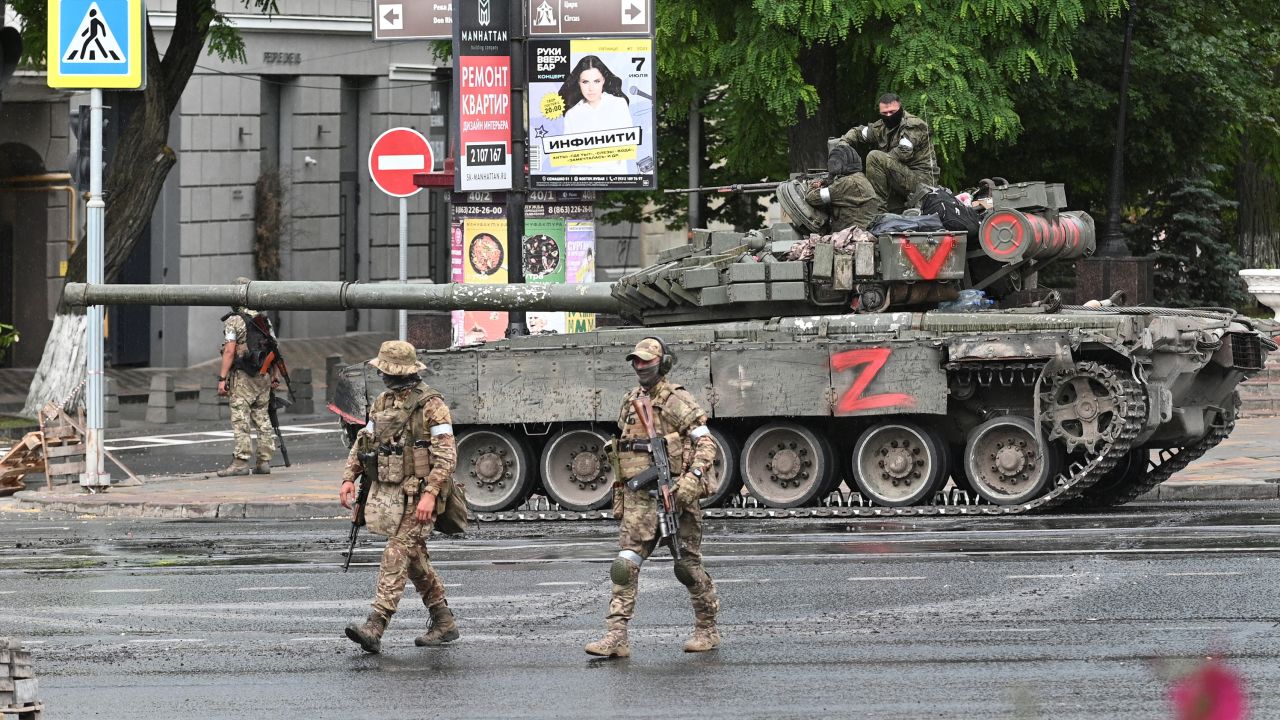
The Rostov region is about 1,000 kilometers (620 miles) from Moscow.
Security officials appeared to take no chances in the capital, according to Russian state media TASS. Social media posts showed military vehicles were seen driving around the main streets of the Russian capital in the early hours of Saturday.
Moscow Mayor Sergei Sobyanin said Saturday on Telegram that “anti-terrorist” measures to strengthen security were being carried out in the capital as a result of “incoming information.”
“Additional control on the roads has been introduced. Limitations on holding the public events are possible,” he added.
Russia’s top commander in Ukraine, Sergey Surovikin, urged Wagner mercenary fighters to “stop” and to “obey the will” of Putin in a Telegram video. “You can’t play into the hands of the enemy in this difficult time for the country,” he said.
Meanwhile, Russians watching State news TV channel Russia 24 had their evening programming interrupted with a message from the Russian Ministry of Defense saying Prigozhin’s claims “do not correspond to reality and are intended to misinform.”
The fiery exchanges sent a ripple through the Russian commentators, with many disagreeing as to whether the Wagner leader was calling for a coup.
But the fallout from his comments also inspired a wave of schadenfreude in Ukraine. “Classical Russian poetry… Tumultuous times are coming,” wrote Mykhailo Podolyak, an advisor to Ukraine’s presidential office, wrote on Twitter.
Ukraine invaded under ‘false pretenses’
Prigozhin and Wagner have played an unusual and informal role in Putin’s Russia. He has known the president since the 1990s; both are from St. Petersburg. Prigozhin won valuable contracts as the Kremlin’s caterer and later set up the Russian troll farm known as the Internet Research Agency, whose mission was to interfere in the US 2016 election.
The Ukraine conflict raised Prigozhin’s profile, but his comments on Friday could precipitate a fall from grace.
Earlier on Friday, Prigozhin furthered his ongoing dispute with military leaders in a highly critical video interview where he said Moscow invaded Ukraine under false pretenses devised by the Russian Ministry of Defense, and that Russia is actually losing ground on the battlefield.
The Ukrainian invasion or the so-called “special operation,” he said, was not launched because of a threat to Russia from Ukraine or NATO despite what Moscow claims, he said in the interview posted on Telegram by Wagner’s media arm.
He added that the situation in eastern Ukraine had not changed in eight years from the time Crimea was annexed, with both sides taking the occasional shot at each other, without any escalation, he said.
His comments challenge Russia’s justification for the war, with President Putin having framed the invasion of Ukraine as a “special mission” to protect Russian speakers from genocide at the hands of ”neo-Nazis.”
Prigozhin has previously defended the reasoning for the war but has been critical of how it has been handled by the Minister of Defense, Shoigu – with whom he is directly fighting with over military contracts.
In the interview, he claimed the ministry misled Russian President Putin entirely. “Now the Ministry of Defense is trying to deceive the public, trying to deceive the President and tell the story that there was insane aggression on the part of Ukraine, and that they were going to attack us together with the NATO bloc. Therefore, the so-called special operation on February 24 was launched for completely different reasons,” he said.
The Wagner chief also accused Shoigu of deceiving Putin about the status of the Ukrainian battlefield, claiming Russian troops are on the back foot in the south of Ukraine, and that the whole invasion was a “poorly planned operation.”
CNN’s Anna Chernova and Lindsay Isaac contributed to this report.

